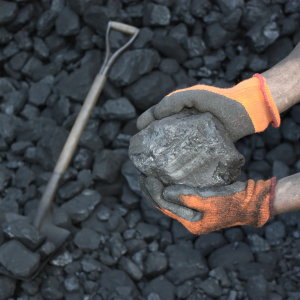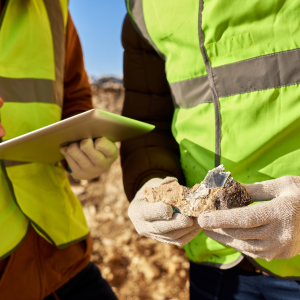
How Do Mineral Rights Affect Land Value?
When you buy or sell a house, especially in Texas, you should know how mineral rights affect the piece of land’s value. Mineral rights can significantly impact how much a property is worth, who owns it, and the laws that govern Texas property law.
Can Land Be Valuable Without Mineral Rights?

Land can be very valuable even if it doesn’t have mineral rights. Even though these rights can make a property more valuable, Texas land is still appealing because of where it is, what it can be used for, and how it could be developed. Mineral rights don’t add value to land that is for sale. Instead, how easy it is to get to, its zoning, and its natural features add value.
Why Are Mineral Rights Excluded in Some Sales?
Land in Texas can’t come with mineral rights because of different laws and rules about conveyance. Or, the sellers may be holding on to these rights to make money from future resource extraction. It’s also possible that these rights were split up in the past. If you want to keep your real estate deals from going wrong, you should carefully read over these exceptions.
How Does Ownership of Mineral Rights Influence Land Price?
In places with many resources, like Texas, mineral rights can make a big difference in the price of land. Those who own these rights can make money by extracting minerals, oil, or gas from the ground, making their property worth more. Because of this, the way homes are advertised and sold will change, as will the power of buyers and sellers in negotiations.
What Legal Considerations Should Be Made?
When you sell land in Texas, you must keep a few legal things in mind. You need to do a full title search and understand surface and mineral rights to ensure the deal goes through smoothly.
How Are Mineral Rights and Surface Rights Defined Legally?

People in Texas have mineral rights and surface rights. Mineral rights let people get minerals from the ground, and surface rights let people use the land above ground. There are some differences in the law that you should know about. You can talk to a lawyer if you need help understanding Texas property laws.
What Is the Process for Conducting a Title Search?
In Texas, you must do a title search before you buy or sell land. Steps must be taken to ensure that the records are correct and that there are no liens on them. People who buy or sell land in Texas are protected if the sale is recorded correctly.
Are There Specific Texas Laws Governing Mineral Rights?
The laws in Texas regarding mineral rights are based on state and property laws. It is very important for everyone involved in a deal to fully understand these rules, which spell out how to give, rent, or keep rights.
The people at We Buy Land Quick know a lot about Texas real estate. Contact our team if you want to know more or need help with your real estate deals.
What Are the Potential Risks and Liabilities?
Can Drilling Occur Without the Surface Owner’s Consent?
Drilling can happen in Texas even if the landowner doesn’t want it to. These are not the same thing. Mineral rights are mineral rights. There is a law that lets someone else get oil or gas from the ground, even if the person who owns the land on top doesn’t agree. The people who own the surface often have trouble in these situations. You need to know the laws governing a Texas land sale to protect your rights.
What Environmental Concerns Are Associated With Mineral Extraction?

Mineral extraction causes several environmental problems. When resources are drilled for or extracted, they can pollute the air, water, and habitats. In Texas, where extracting resources is common, it is crucial to follow environmental rules to lower these risks. People who own land on the surface and mineral rights have responsibilities to protect the environment.
Are There Possible Zoning or Liability Issues?
Property owners in Texas worry a lot about zoning and liability issues. The laws in your area will tell you how to build or use the land, and zoning rules will tell you how to build. Getting sued or losing money at a Texas land sale is possible if you don’t know these rules. You can determine if the property has zoning issues with a lot of work.
How to Assess the Worth of Your Land?
What Factors Determine Land Value in Texas?
The value of land in Texas is affected by many things, such as its location and market trends. Land in a hot spot or an area that is growing quickly can be worth more. Changes in the market, such as buyer interest and demand, also play a big role. Texas real estate buyers and sellers can make smart choices if they know the market trends.
Is It Necessary to Appraise Land Without Mineral Rights?

You should know how much land is worth, even if it doesn’t have mineral rights. An appraisal looks at more than just that to determine how much land is worth. It also checks out where and what it could be used for. The legal stuff is also important because it can ultimately change the price. Everyone can see how much the land is worth after a full appraisal. It doesn’t matter who owns the mineral rights.
How Does the Market Trend Affect Valuation?
The value of land changes a lot when the market changes. You can see changes in the economy, buyer interest, and demand in Texas real estate. People who own land or invest in Texas can make smart decisions as the market changes if they know the newest land market trends. If you know about these trends, you can guess the future prices and chances of making money.
What Are Common Misconceptions About Mineral and Surface Rights?
Understanding land ownership, especially mineral and surface rights, is crucial for property transactions. These two types of rights often confuse property owners and buyers.
Do Owners Always Have Control Over Both Rights?

Many believe landowners control both mineral and surface rights. In reality, these rights can be owned separately. A landowner might not own the mineral rights if they were previously given to someone else. Future buyers should check the deed to know who controls each right.
Are Mineral Rights Automatically Included With Land Purchase?
It’s a common belief that buying land includes mineral rights. However, mineral rights might have been separated from surface rights. Buyers should investigate the history of the land to understand if they are getting both types of rights or just one.
Can Ownership of Rights Change Over Time?
Ownership of mineral and surface rights can change over time through sales or transfers, which might divide these rights between different owners. New owners should review past documents to see changes and understand current ownership and control.
What Financial Implications Should Sellers Consider?
Are Mineral Rights Profitable Even Without Surface Ownership?
Mineral rights can be a significant source of profit, even if you do not own the surface land. These rights let you explore and extract resources like oil, gas, or minerals. When leased to exploration companies, mineral rights can generate income through royalties. This means you can benefit financially from resource extraction without owning the surface. Understanding market trends in resource extraction is also crucial for enhancing the profitability of your mineral rights.
What Tax Liabilities Might Arise From Selling Land Without Mineral Rights?

Selling land while keeping mineral rights can lead to specific tax implications. In Texas, property tax implications vary with each transaction. Income from the sale might be subject to capital gains tax, and revenue from retained mineral rights could lead to additional income taxes. Understanding conveyance processes and their impact on overall tax liabilities is crucial. Consulting a tax professional familiar with Texas mineral rights can help reduce unforeseen tax burdens.
How Can Sellers Maximize Financial Returns?
Adopt strategic negotiating practices to maximize financial returns from selling land in Texas. Know current market trends and understand your property’s value. Setting competitive prices and using insights into real estate transactions in Texas can lead to higher profits. Improving land value before sale, such as enhancing access or obtaining favorable zoning, can significantly increase returns.
What Steps Are Involved in Finalizing a Sale?
How to Prepare Necessary Documents for Transfer?
A lot of work needs to be done to prepare the paperwork to transfer land. Check the property’s title thoroughly to see if there are any liens against it. Check to see if the Texas land registry is correct and up to date. If you sell land in Texas, make sure the land deed transfer is done the right way. Having lawyers help with this can make things go more smoothly and prevent arguments.
Are There Specific Closing Procedures for Texas Land Sales?

You must follow specific steps to close a land deal in Texas. There is an escrow process to keep the money safe, and state laws must be followed when land is transferred. Most of the time, you need a complete land survey to ensure the property lines. Getting the sale of the land recorded with the right county offices seals the deal and ensures the new owner is recognized.
What Should Be Included in the Sale Agreement?
The sale agreement is a vital piece of paper in Texas real estate deals. It should not only have clear terms and conditions but also be legal and follow all state laws. The most important parts are the property description, the agreements on who is responsible for what, and the safety measures to protect both the buyer and the seller. This contract should cover everything to ensure there are no more disagreements and the transfer of ownership goes smoothly.
How Can Buyers Protect Their Interests?
What Due Diligence Should Buyers Perform Before Purchase?
When purchasing land in Texas, buyers should perform thorough due diligence to protect their investments:
- Title Search: To confirm the seller’s legal ownership, check the title history. This helps prevent future disputes over the property.
- Legal Considerations: Understand the legal obligations specific to Texas land sales. Familiarize yourself with Texas property laws, especially regarding mineral rights.
- Environmental Concerns: Identify any environmental issues, such as contamination or protected areas, that could affect the land’s value or intended use.
Conducting careful research in these areas allows buyers to make informed decisions and reduce potential risks.
How Important Is Legal Assistance in Such Transactions?

Legal assistance protects buyers’ interests in Texas real estate transactions. Hiring an attorney offers several benefits:
- Contract Review: Attorneys ensure contracts are clear and detail each party’s rights and duties, helping avoid misunderstandings.
- Compliance Assurance: Legal experts verify compliance with Texas property laws, ensuring all aspects of the transaction meet legal standards.
- Understanding Rights: Lawyers clarify complex issues like mineral rights, which can impact land value and use.
Legal guidance simplifies the complexities of property transactions, effectively protecting buyer interests.
What Agreements Can Safeguard Buyer Interests?
Several agreements can protect buyers in real estate transactions:
- Purchase Contracts: Contracts should clearly state the terms of sale, including price, contingencies, and both parties’ responsibilities.
- Conveyance Documentation: Ensure precise documentation related to property transfer, including mineral rights.
- Escrow Process: Use an escrow service to hold funds until all sale conditions are met, providing financial security.
These measures collectively increase the security and clarity of land purchases in Texas.
What Resources Are Available for Further Learning?
Where to Find Reliable Information on Mineral Rights?
For learning about mineral rights in Texas, several resources are helpful:
- Online Research Tools: These platforms offer property laws and mineral rights data, helping buyers understand specifics before deciding.
- Real Estate Websites: Access portals with insights into Texas property regulations and real estate market trends.
Keeping informed through these channels equips buyers with knowledge for confident land acquisitions.
Which Organizations Offer Guidance on Land Sales in Texas?

Several organizations provide valuable support for those involved in land sales:
- Texas Association of Realtors: Offers resources and guidance on buying and selling land, ensuring industry standards.
- Land Brokers: Experienced professionals who provide advice and assistance throughout the buying process.
Using these resources can lead to smoother and more informed land transactions.
How Can Online Tools Aid in Researching Land Transactions?
Online tools are essential in simplifying the research process for land transactions:
- Title Search Tools: Access databases with comprehensive title histories to help buyers verify property ownership.
- Texas Land Registry Services: Use official registries for accurate information on land valuations, ownership details, and tax implications.
These digital resources allow buyers to gather information for efficient and well-informed land acquisition decisions.
FAQs:
What is the best way to sell land in Texas without mineral rights?
Selling land in Texas without mineral rights starts with knowing the value of your surface rights. Work with a professional appraiser for accurate land valuation and consider listing with a Texas land broker familiar with local market trends. To reassure potential buyers, have clear documentation, like title insurance or a special warranty deed.
How can I sell my land fast in Texas?
To sell your land quickly in Texas, price it competitively after a recent appraisal. Work with experienced Texas land brokers and use online platforms for broader exposure. Offering owner financing can attract more buyers. Consult with realtors for effective marketing strategies.
Are there any legal implications when selling land without mineral rights?
Yes, selling land without mineral rights in Texas requires clear communication about the absence of these rights. Disclose this information upfront to avoid future legal disputes. Consulting a real estate legal expert ensures compliance with regulations and protects your interests.
What should I know about Texas property tax implications when selling land?
When selling land in Texas, understand the property taxes involved. Settle any outstanding taxes before transferring ownership. Stay informed about current property tax rates and possible exemptions affecting the sale. Consult with a tax professional if necessary.
Can I sell inherited land in Texas, and what should I consider?
Yes, you can sell inherited land in Texas. Ensure the probate process is complete and you have the legal authority to sell. Work with a realtor specializing in inherited properties to handle challenges like partition sales or family disputes. Understand any tax liabilities related to selling inherited land.
What are the key factors in valuing land in Texas?
Key factors include location, size (acres), accessibility, and any improvements on the land. Market trends, economic incentives, and development potential also play significant roles. Engage a professional appraiser for an accurate valuation to guide your sales strategy.
How does one handle a land sale with existing restrictive covenants?
When selling land with restrictive covenants in Texas, disclose these restrictions to potential buyers. These covenants can limit land use and may affect buyers’ plans. Review them with a legal expert to fully understand their implications and ensure compliance during the sale process.
Key Insights
- Selling land in Texas involves knowing important factors like mineral rights. Understand the specifics if you’re selling land without mineral rights, especially ranches or farms.
- To sell unimproved land in Texas, get familiar with land contracts, tax liens, and public auction processes in the state.
- To sell Texas land, consult with estate planning experts to ensure due diligence. Consider using extraordinary warranty deeds for secure transactions.
- When selling property in North Texas or cities like San Antonio, Laredo, or Reeves County, pay attention to local land ownership rules and buyer preferences.
- Understand what is involved in privatizing land, especially in places like Glasscock, San Augustine, and Lyon County.
- Employing an executor for land sales in Texas can help manage tasks like quitclaim deeds and land surveys.
- Consider buyer interests, which might include oil interests or opportunities for rental properties.
- For land parcels, check archives and record all necessary information accurately.
- Use resources like the Texas Association of Realtors for guidance on the right of first refusal and Texas land registry requirements.
- Look for expert advice and tips on selling land, especially if you work through a company that specializes in land transactions.
Looking to sell your land in Texas? We make it easy! Whether you’re in Houston, San Antonio, Dallas, Austin, Fort Worth, El Paso, or nearby, we buy land statewide and guide you through every step. Contact us at (469) 529-7977 for expert assistance!


